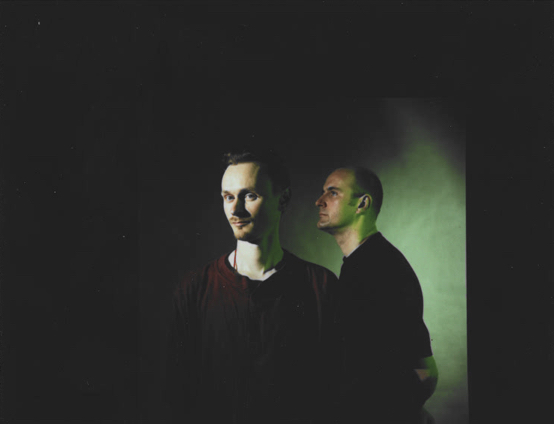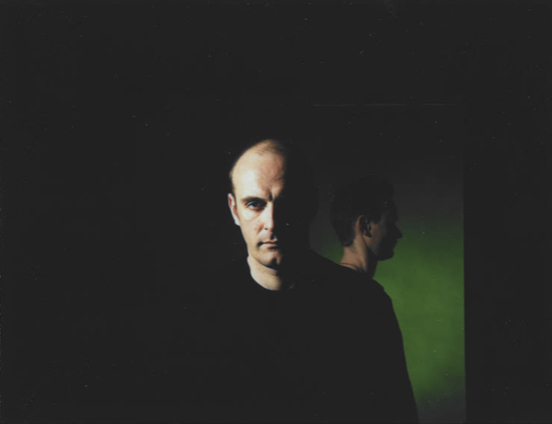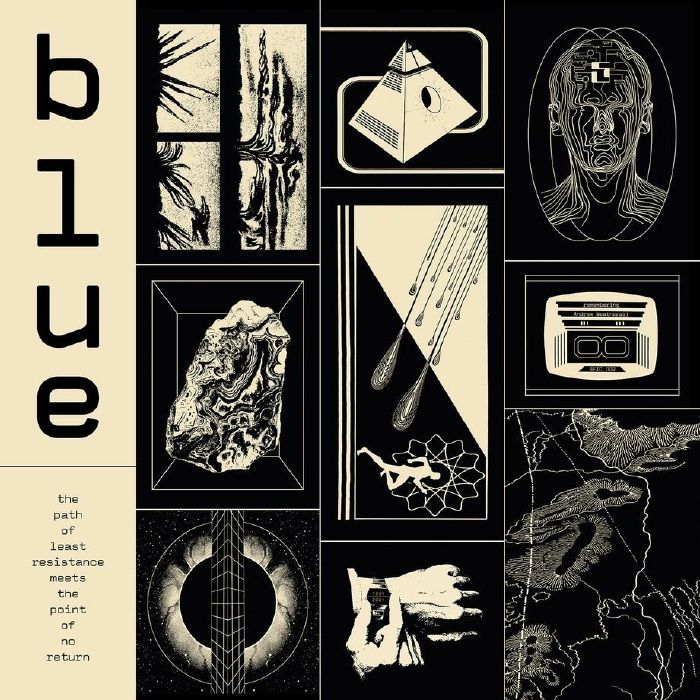Blue Interview – “Andrew was a constant source of creativity, and enthusiasm for music”
Weatherall faves return from 18 year hiatus

Blue is a name that will ring bells with anyone who followed the early days of Andrew Weatherall’s labels Sabres of Paradise and Emissions Audio Output, soundtracking the 90s with their deep, resonant brand of ambient-tinged techno.
The British duo are back after an 18 year hiatus with a new album – The Path Of Least Resistance Meets The Point Of No Return – collecting a selection of tracks carefully restored from DAT tapes made between 1997-2001.
We caught up with Blue members Chris Mann and Paul Darking for a retrospective – charting their come-up as dance greats, their noughties hiatus, and even some outrageous copyright claims from a dreamy boyband.
Ben Willmott uncovers all…
Give us a brief history of Blue – where are you from, how did you meet… your recording history. Have you continued to record together until now or was it a case of ‘reforming’?!!
We met in the late 1980s playing in Cambridge bands. Paul’s a percussionist and I’m a drummer and we had a mutual interest in the bands that came out of post-punk as well as early hip-hop. When samplers started to become affordable, we got into programming beats and recording which coincided with the beginnings of the acid house scene which we both loved. We became involved with Sabres after a tape of ours was passed to Andrew who liked it and offered to put it out as a single (that was ‘Internal’), that also appeared on both the Sabres Deep Cuts and Septic Cuts compilations.
That was followed by the Four Of Seven EP on Sabres, which features the Sabres logo on the cover.
After that we started working on our debut LP Resistance which explored our love of dub by slowing down the beats and introducing more space into the music. This was released as the first album on the newly formed Emissions label. To accompany the album, we released the 10″ single “Circle Line” which had a Rootsman remix on the flip side and was used as theme music for the BBC TV series “Rail Cops”. After that there was an EP of remixes of tracks from Resistance by Adrian Sherwood, The Moody Boyz, Ashley Beadle and Rootsman called “Blue and Friends”.
The next album Mexican Church started to incorporate a broader set of influences and saw us starting to make more of the sampler as a creative tool. Around this time Blood Sugar (Andrew along with David Harrow) did a remix of ‘Prisoner (from Resistance)’ on a limited 12″. After that we release one final EP for Emissions before the label folded.
Following the demise of Emissions we became involved with the Iris Light label (an Industrial music label from Cornwall). We released two further albums with them: Nightwork, which extended the template of Mexican Church taking in more industrial and world music influences, and Corrosion where we returned to making shorter beat driven tracks.

We stopped working as Blue in 2003. At that point we had been writing and recording steadily for over 10 years, so it was time to take a break. Chris has continued to record and perform and has had music used in TV, Paul carried on DJing and playing in the odd band.
Obviously, a lot of people will know you from your recordings on Sabres of Paradise – how did they come about? What was Andrew like as a label boss? Any particularly fond memories of DJing / recording / hanging out with him? What do you think are the qualities that he possessed that will be particularly missed by music in general?
For us Andrew was a constant source of creativity, and enthusiasm for music. We had both been fans of his work before we became involved with him, so recording for Sabres was a great honour. We were always impressed by his broad knowledge of music and can remember him introducing us to bands as diverse as Scorn and Cypress Hill on our visits to the Sabres offices. As artists we were given complete creative control rather than being pressured into making commercial decisions.

Tell us what lies in store for us on the new album? What was it like revisiting the work and did you find any unexpected treats in the DAT collection? Was there a specific aim you had in mind for the LP overall?
Between 1997 and 2003 we worked on tracks for an ambient album that was never released. At the time we were exploring making tracks with less beats and focussing more on textures and feel.
When we were approached by Souvenirs From Imaginary Cities it seemed like a coherent set of tracks to make into an album. The music combines mixes done at the time with excerpts from live gigs, and in some cases the tracks have been built up from several different mixes which each had their own interesting characteristics.
We have over 70 hours of DAT tapes with tracks and mixes we made over the years. Listening back some are very familiar while others are totally unrecognisable! Going through them we have come across a good few unreleased tracks and mixes that bring a new dimension to tracks previously on the albums, so are considering releasing some of those. We are in the process of putting up the old albums on streaming services so you may see some previously unreleased stuff appearing in the future.
There’s a lot of interest in early and mid-90s British electronica at the moment – why do you think that is and what qualities does it possess that have brought people back to this music?
It was a time of experimentation where the whole field of music was open (similar to post-punk) and could be combined in interesting ways which led to music that looked to the future rather than the past, and while some of it may not stand the test of time there is load of great stuff (FSOL, Global Communication, Leftfield, Warp Records etc.) that still sounds fresh today.
I bet you were gutted when the boy band Blue came out? Any hilarious double booking mix ups involved?!!
Other than them trying to claim rights to our tracks we didn’t really take a lot of notice of them. The only satisfaction from that was that we probably sold a few records to some pop fans which must have been a bit of a surprise for them…
Finally, what’s next for Blue – any other projects coming or possibly even new material?
As I mentioned we have started making the old releases available through Bandcamp (circleline.bandcamp.com) and streaming platforms. We also have over 70 hours of DAT recordings that we are going through at the moment with a view to doing something with the unreleased mixes whether that be a straightforward release or something more creative – we shall see.
Pre-order your vinyl copy of The Path Of Least Resistance Meets The Point Of No Return